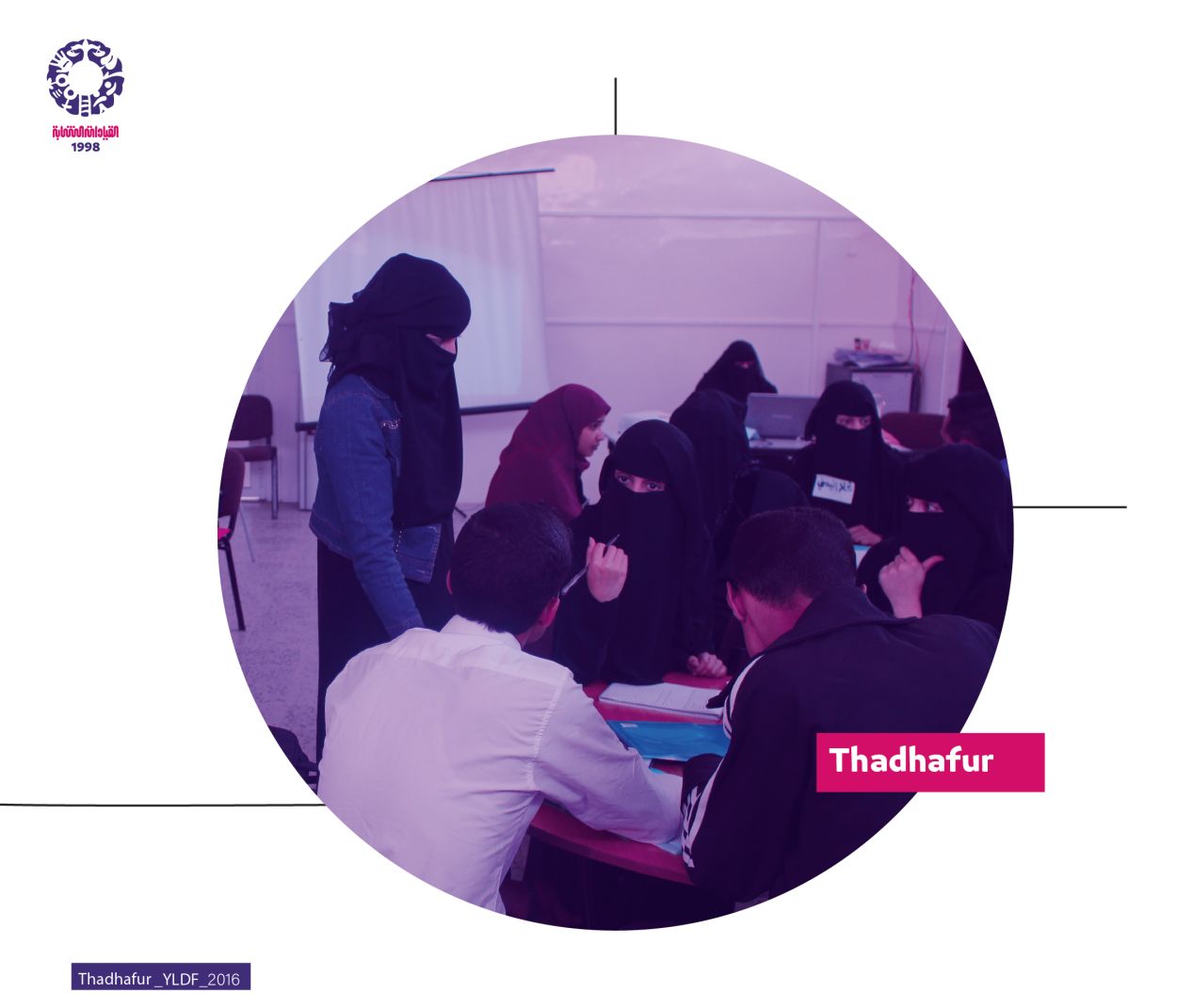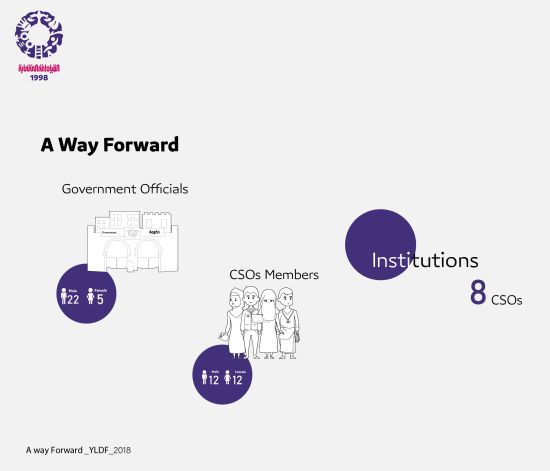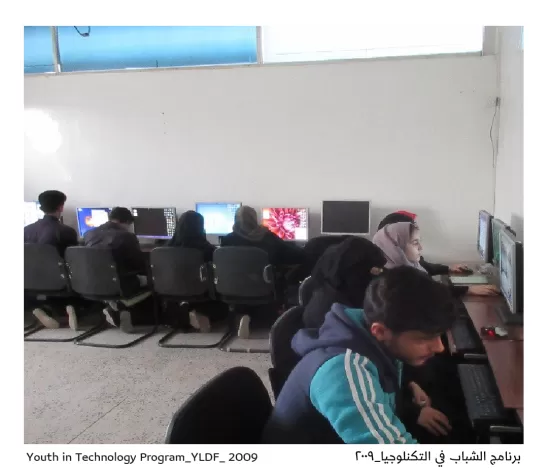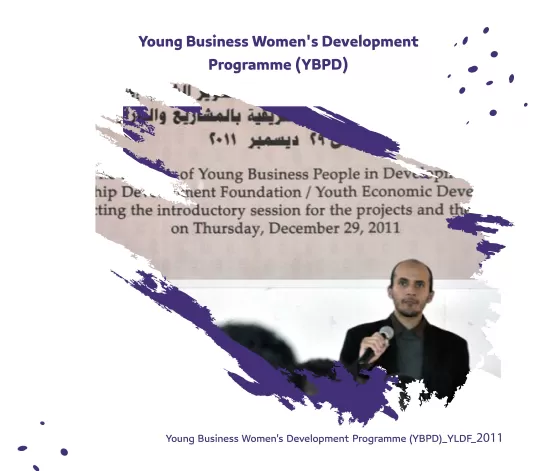Tadhafur
Project Goal:
In this proposal, YLDF in partnership with UNICEF is seeking to to further build on the results of its previous work with women for more than 10 years, for example through its center GWCC and various programs implemented to support women and their rights (Antelak Program, Tadhafur Program, Women in Politics, Women in Conflict and many others). This program will specifically build on Antelak program that has been implemented twice to advocate for Safe Age of Marriage.
Project Duration: 1 Year.
Targeted Areas: Sana’a, Aden, Ibb, Hajjah, Dhamar, & Alhodaidah.
Targeted Group: Adolescents, adolescent girls, married girls, youth mentors, parents & community leaders .
Implemented Organization: Youth Leadership Development Foundation (YLDF)
Partner: UNICEF.
Project Summary
The proposed project Tadhafur: for Safe Age of Marriage, is a one year program that can be taken forward and replicated in following years to make a stronger and more sustainable impact.
The implementation will address both gender and age identified needs based on gender analysis in relation to child marriage in Yemen, with a specific focus on adolescent girls, whether married or at risks. The wider community will be addressed through communication and awareness activities, as well as adolescent boys through peer education. If cases of married boys are identified in the targeted districts, appropriate referrals will be made.
The program is keen to reinforce the importance of safer age of marriage as one of the key issues in child protection and in gender in Yemen and YLDF will make use of the inter-agency Gender Equality Measures (GEM) framework throughout the implementation.
In order to ensure gender, equity and sustainability, the following strategies will be taken into account:
Children/Adolescent Participation:
Participation of children/adolescents in planning the activities, ensuring gender consideration with a focus to ensure the participation of Girls in all aspects of the program is an important principle to guide the strategy of this work.
Peer approach:
Selected adolescents will be trained on life skills, including child protection issues and peer education techniques so that they are equipped in transmitting life skills, including problem solving skills, child marriage issues and consequences to their peers.
Community/Family participation
The participation of the community is an essential element to ensure sustainability. Therefore, the project aims at facilitating the participation of all stakeholders (duty bearers and right holders) in the project, including the local traditional leadership. Ensure the participation of men and boys as agents of change and support linkages between the national and community level experiences, which lead to increased ownership.
Capacity Building:
Ensure sustainability through investing in the capacity building of local human capabilities specifically in addressing child marriage and violence against girls
Objectives:
- Strengthening identification of child marriage cases and provision of multi-sectorial response/referral services through promoting gender equality, girls’ education, legal environment and aid, alternative to marriage and improved reproductive maternal and child health.
- Increasing awareness and knowledge of adolescents, young men, parents, religious and community leaders and communities on the adverse effects of early/child marriage and on the benefits of delaying marriage and support for keeping girls in school during adolescence.
- Building resilience and skills: Empowering adolescents girls through providing them with knowledge, life skills, social and economic Support and access to services
Outputs:
-
Situation of early/child marriage in the targeted governorates/ districts is available facilitating proper planning/programming with clear/specific targets.
- Conduct orientations for 3 field researchers and 60 data collectors in each targeted districts.
- Mentors and peer educators from each targeted district aged 18 – 25 are skilled on rights-based curriculum focusing on life skills, communication skills, facilitations skills, reproductive health and health care and the knowledge of the adolescents’ rights
- Conducting training session for 95 mentors and peer educators in each governorate including all districts
- Adolescent girls from the selected districts are trained on life skills to build their confidence and know how to take care of themselves. They will also work with the Mentors in implementing their activities.
- Conduct trainings for 950 adolescents girls in each targeted district
- Adolescents (14- 18 yrs), parents, community/religious leaders are aware on adverse consequences of early marriage and benefits of keeping girls in school during adolescence.
- Conduct two activities by each Mentor targeting 10 adolescents in each activity for 8 months
- Conduct Gathering Sessions for Mentors (only two representatives from each governorate) to refresh their skills and share experiences, best practices and leanings
- 2,850 identified married girls from the targeted districts are supported through multi-sectorial response as appropriate (health, legal, psychosocial, education and empowerment), including through improving their knowledge and access to maternal and reproductive health care services
- Conducting 2 sessions in each districts for 10 months targeting 15 married adolescent in each session. The session will be designed as per the need of the district.
- Provide Small Business training in each targeted governorates targeting 150 married and non-married
- Providing grants for 30 girls to start their own businesses.( not direct cash)
- 57 action plans of communication and advocacy awareness campaigns are implemented targeting adolescents, addressing the theme of early marriage targeting about 200 person in each campaign per governorate
- Develop Scenarios and contacting 19 play and interactive theatres targeting youth, parents, adolescents and community leaders.
- Conducting 19 Radio Sessions addressing themes related to Child Marriage.
- Developing and implementing 19 awareness activities targeting parents, adolescents and community leaders
- Two local NGOs/UNICEF’s upcoming partners (ADO and ROFHD) are capacitated to conduct technical trainings in the governorates to respond to the needs of adolescent married and at risks girls.
- Conducting five days training for two of UNICEF Partners in Al-Hodaidah and Hajjah.
- Monitoring and Following up with the Partners while implementing the trainings







